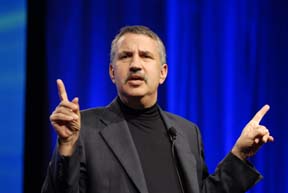I am about half way through Thomas L. Friedman's book The Lexus and the Olive Tree and I'm really enjoying his approach to explaining globalization and how it is relevant to every aspect of our lives. He uses anecdotal commentary to make globalization easily understood. In the beginning of the book, Friedman describes the shift towards the democratization of technology, finance, and information. One aspect of the democratization of information made me think about AIChE. Friedman writes:
"In today's hyper-speed, enormously complex globalization system, most of the information needed to answer most of the problems now rest in the hands of people on the outer edges of the organizations, not at the center. And if your country or company has not democratized decision making and de-concentrated power to enable these people to use and share their knowledge, it is going to be a real disadvantage."
A lot of the value AIChE creates is sharing knowledge. That knowledge is often outside the four walls of the company, or even outside the country.
The book quotes Warren Bennis' book Organizing Genius: "None of us is as smart as all of us." Following this quote, Friedman describes Robert Shapiro, a past CEO of Monsanto, as a classic example of understanding how globalization is reshaping everything around us, including how firms change and structure their power. He points out that firms with an overly rigid a hierarchy may kill the flow of feedback from employees who deal with customers, (e.g., sales engineers) since this slow-moving information is often irrelevant by the time it reaches a decision-maker.
Watching this video on innovation, I was again reminded of AIChE. It cites professional networking as a cornerstone of innovation. The video claims that networking and collaborating trigger "associative thinking," which in turn allows people to "connect the dots."
Since I am currently on a job search, it occurred to me that prospective employers and those in leadership positions at times may not fully acknowledge and value active participation in professional organizations.
Is this the case out there for you? I hope you'll share your thoughts. You can share your comments below, or contact me directly though LinkedIn.



